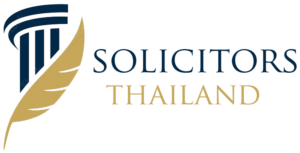The Thailand Permanent Residency visa is a sought-after status for foreigners looking to establish long-term residency. It provides numerous benefits, including legal stability, business advantages, and a pathway to citizenship. However, the process is rigorous, involving strict eligibility criteria, document preparation, and government scrutiny.
1. Benefits of Permanent Residency in Thailand
- Long-Term Stability:
- Holders are exempt from annual visa renewals and re-entry permits.
- No limitations on the duration of stay in Thailand.
- Business and Employment:
- Simplifies company registration processes.
- Allows ownership of up to 49% of shares in a Thai company without restrictions under the Foreign Business Act.
- Property Ownership:
- PR holders can own condominium units outright.
- Family Sponsorship:
- Easier to secure visas for foreign family members.
- Pathway to Citizenship:
- PR status is a prerequisite for applying for Thai citizenship after ten consecutive years of residence.
2. Eligibility Criteria for PR Visa
Applicants must meet one of the following requirements:
- Employment-Based:
- Hold a work permit for at least three consecutive years.
- Earn a monthly income of at least 80,000 THB or file personal income tax for over 100,000 THB annually for two years.
- Investment-Based:
- Invest at least 10 million THB in government bonds, real estate, or a Thai company.
- Family-Based:
- Be married to a Thai citizen for at least five years or have a Thai child.
- Expertise-Based:
- Demonstrate exceptional skills or professional expertise that benefits Thailand.
- Other Special Cases:
- Individuals with contributions to Thai society or exceptional qualifications.
3. Application Process
- Submission Window:
Applications are typically open between October and December each year, as announced by the Immigration Bureau. - Required Documents:
- Personal Documents: Passport, long-term visa, and work permit.
- Financial Proof: Bank statements, tax returns, or investment certificates.
- Medical and Police Certificates: From recognized Thai institutions and the applicant’s home country.
- Additional Proofs: For family or business ties, including marriage certificates or shareholder agreements.
- Review and Interview:
- Applicants undergo a Thai language test and an interview with immigration officials.
- Final Approval:
- Approval is granted by the Ministry of Interior and can take up to a year.
4. Responsibilities of PR Holders
- Annual Address Reporting:
PR holders must report their address annually to the Immigration Bureau. - Re-Entry Permit:
While PR eliminates most visa concerns, a re-entry permit is necessary if leaving Thailand temporarily to maintain residency status. - Compliance with Thai Laws:
PR holders are subject to Thai laws on taxation, property ownership, and legal reporting.
5. Key Considerations and Challenges
- Rigorous Screening:
The application process is time-consuming, requiring extensive documentation and strict adherence to deadlines. - Processing Fees:
Fees range from 7,600 THB for application submission to 191,400 THB upon approval for non-family-based applications. - Limited Annual Quotas:
PR approvals are capped annually, with country-specific quotas, making early applications crucial.
Conclusion
The Thailand Permanent Residency visa is an excellent option for foreigners seeking long-term integration into Thai society. While the application process requires careful preparation and patience, the benefits far outweigh the challenges, offering legal stability, business opportunities, and a pathway to Thai citizenship. Engaging legal professionals for guidance can streamline the process and ensure compliance with all requirements.

